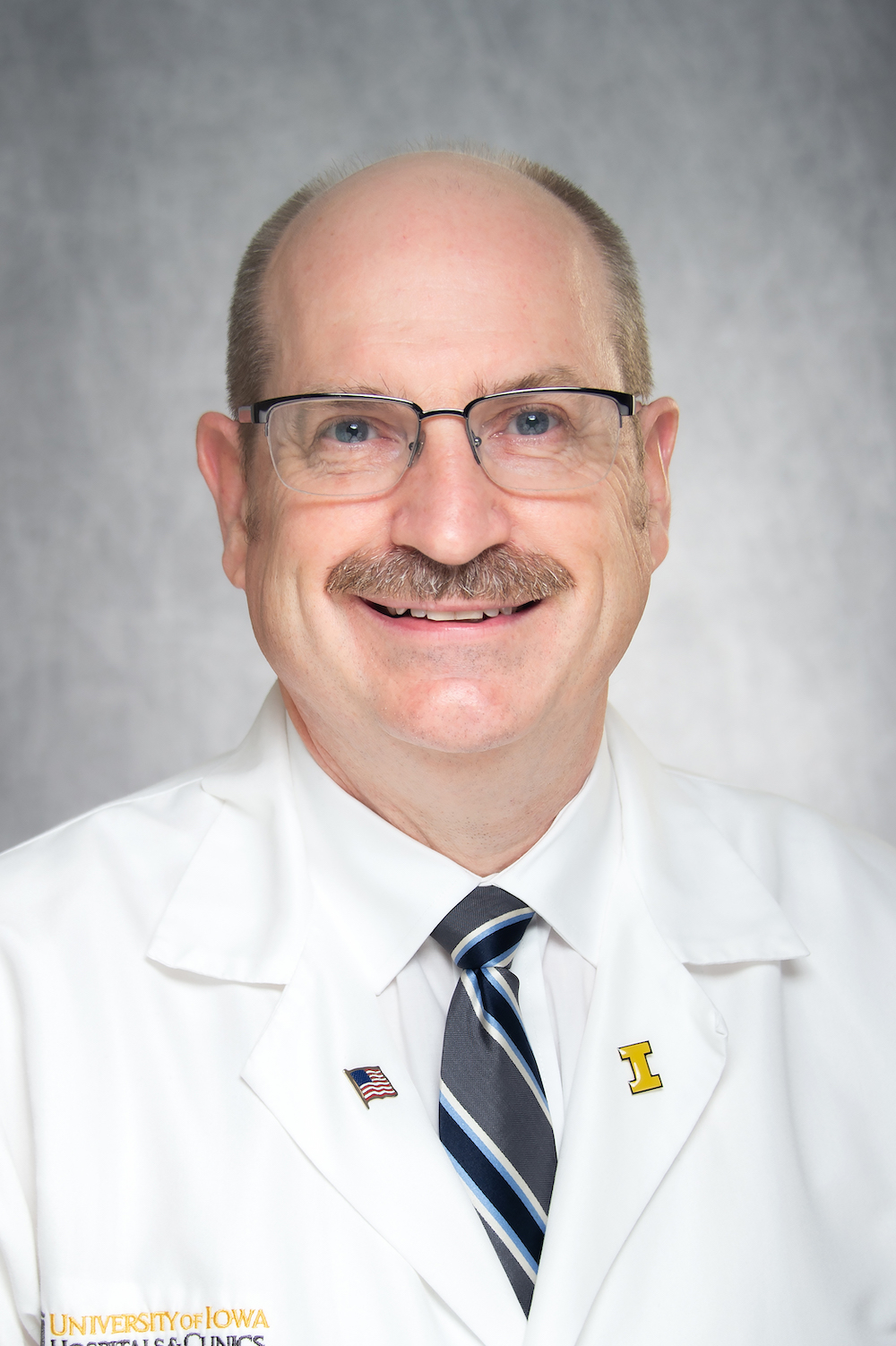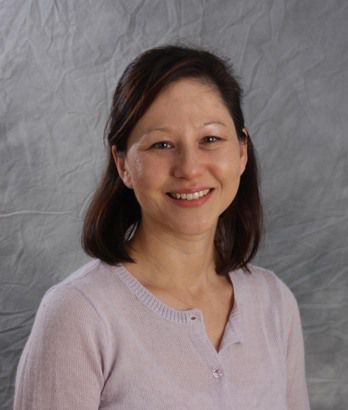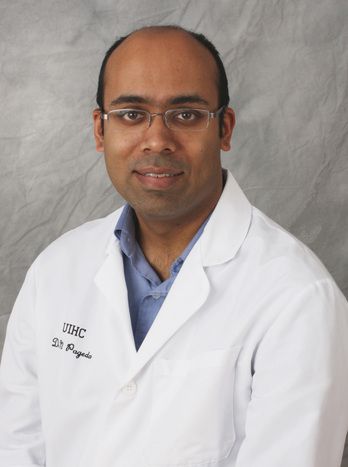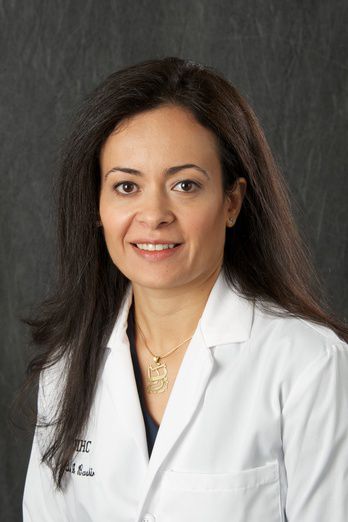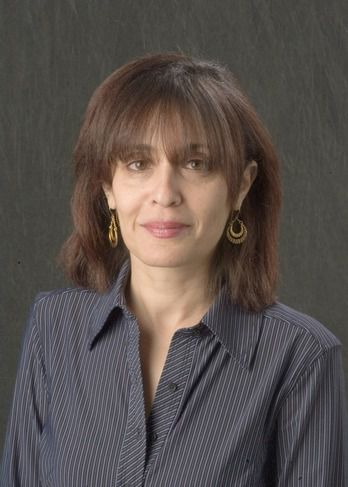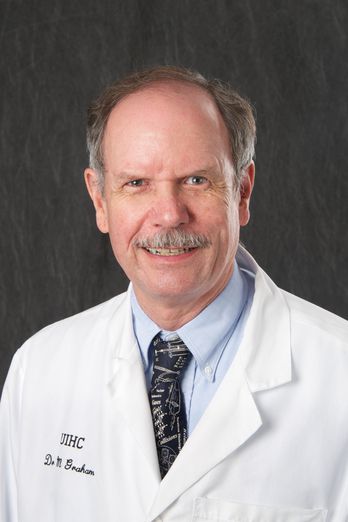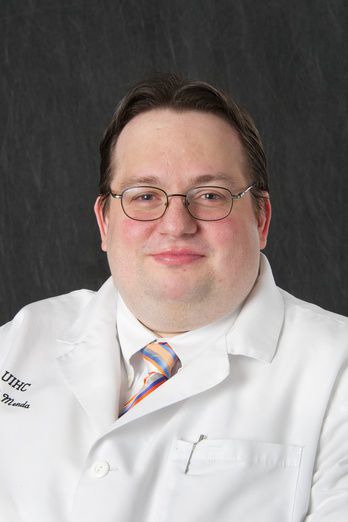If you can feel your thyroid gland, that may be a sign of thyroid cancer.
The thyroid is a gland in your neck. It’s in front of your windpipe, lower than your Adams apple but higher than your collarbone.
When the thyroid is its normal size, you can’t feel it. But if it becomes enlarged, you may be able to feel it as a lump or swelling in your neck. This could be a sign of thyroid cancer.
There are several different types of thyroid cancer. Some of the more common symptoms include:
- Pain that you feel in the front of your neck and even all the way up to near your ears
- Difficulty breathing or swallowing
- A cough or a hoarse voice that won’t get better
If you notice symptoms like these, that doesn’t mean you have thyroid cancer. But you should tell your doctor about them.
Learn more about thyroid cancer, who gets it, and how it’s treated.
- Anyone can get thyroid cancer, and women are more likely than men to get it.
-
Women are also more likely to get thyroid cancer at a younger age than men. Women are most at risk when they’re in their 40s or 50s. Men are more likely to get it when they’re older than 60.
The cause of thyroid cancer is unknown. There are some risk factors for thyroid cancer. A risk factor is anything that increases you chances of getting the disease. If any of the risk factors apply to you, that doesn’t mean you’ll get thyroid cancer. It just means you have a higher risk of getting it than an average person.
Risk factors for thyroid cancer include:
- Other types of thyroid disease, such as Cowden disease
- Having an immediate family member (parent, brother, sister, or child) who has had thyroid cancer
- Radiation treatments for head and neck cancers
How much iodine you get in your diet also can be a risk factor. A diet too low in iodine or too high in iodine can put you at risk for thyroid cancer. Most Americans get an appropriate amount of iodine in their diet from the iodine added to table salt and from a few other foods.
- There are four types of thyroid cancer.
-
Papillary Thyroid Cancer
This is the most common type of thyroid cancer. It occurs more frequently in women. The diagnosis is often made on FNA before surgery. Spread to the lymph nodes is frequent. It usually takes up radioactive iodine, which is used for diagnosis and treatment after thyroidectomy.
Follicular Thyroid Cancer
This type is less common. It is typically identified as a follicular neoplasm on FNA, therefore requiring thyroidectomy for diagnostic purposes. Invasion of the capsule or vascular space is its hallmark on pathologic exam. It usually takes up radioactive iodine, which is used for diagnosis and treatment after thyroidectomy.
Medullary Thyroid Cancer
This type originates from C-cells, which migrate into the thyroid during embryo development. It produces a tumor marker, calcitonin, which can be detected on FNA with a special stain, or with a blood test. Thirty percent of medullary thyroid cancer is inherited. Medullary thyroid cancer will often spread to the lymph nodes. It does not take up radioactive iodine.
Anaplastic Thyroid Cancer
This is a deadly type of cancer that is most often diagnosed in older individuals. It is fortunately rare. The treatment may involve surgery, chemotherapy, and radiation therapy. The cancer does not take up radioactive iodine as the cells have become dedifferentiated – they no longer act or look like thyroid cells.
- Surgery is the most common treatment for thyroid cancer.
-
The exact treatment depends on the kind of thyroid cancer you have. Sometimes the entire thyroid is removed. Sometimes part of the thyroid can be saved. If the cancer hasn’t spread, most cases of thyroid cancer can be cured with surgery.
The thyroid produces a hormone that your body requires. If your thyroid is removed, you’ll need to take thyroid hormone pills.
Holden treats your thyroid cancer with a team of experts, all working for you.
Your thyroid cancer care team of specialists includes surgeons who specialize in thyroid cancer, endocrinologists, medical oncologists, radiation oncologists, pathologists, pharmacists, genetic counselors, nurses, and others. They work together to design a treatment plan that is personalized for you, and your cancer.
Holden offers you:
- Experts focused on thyroid cancer: They understand thyroid cancer and stay up to date on the newest treatment options.
- Innovative clinical trials: Our physicians are also thyroid cancer researchers who help to create new approaches in thyroid cancer care. We offer many of these therapies to our patients before they’re widely available on the market.
Meet your care team.
Surgeons
Internal Medicine Physicians
Otolaryngology Physicians
Pathology Physicians
Radiology Physicians
Nurse Navigator
Cancer Care Clinics
Clinical Cancer Center
21602 Pomerantz Family Pavilion (PFP)Elevator M, Level 1
Phone: 1-319-356-4200

